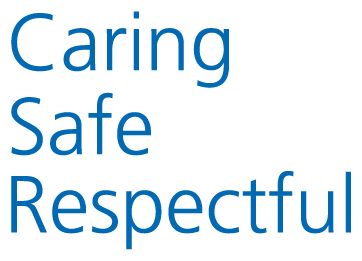Who are Qualified Teachers of Children & Young People who are Visually Impaired (QTVI)?
QTVIs are Specialist Teachers who have additional, mandatory qualifications in teaching children and young people with a visual impairment.
Where does the QTVI work?
QTVIs work in homes, early years setting, schools and colleges supporting families, learners and settings in understanding and meeting the needs of visually impaired babies, children and young people.
The role of the QTVI varies depending on the needs of the children, families, settings, schools are colleges they are working with. The role of the QTVI can include:
Liaison:
- with health care professionals, such as Ophthalmologists and Orthoptist, Health Visitors, Paediatricians, Therapists etc,
- parents/carers, practitioners in early years settings, teaching, and support staff in schools and colleges and SENCOs in settings, schools and colleges,
- other professionals such as Educational Psychologists, Special Educational Needs and Disability Officers, Social Workers, Habilitation/Mobility Officers etc.
Assessment:
- of children and young people’s functional vision as well as their development and learning in general,
- in relation to the suitability of specialist equipment to support a child/young person’s access to education,
- and identification of needs, outcomes and provision for children and young people as part of the statutory Education, Health and Care Needs Assessment process (EHCNA).
Teaching:
- babies/young children and their families at home,
- children in early years settings,
- children in schools (e.g. braille, accessibility software),
- young people in colleges,
- practitioners in early years settings and teachers and support staff in schools and colleges to model strategies and approaches to enable them to effectively support individual children and young people.
Teaching babies, children and young people will cover a range of different areas depending on each baby’s, child’s or young person’s unique needs, strengths and interests and may include areas such as:
- maximising residual vision and developing compensatory skills,
- communication and interaction,
- physical development.
Advice:
- to parents, carers and families to enable them to understand the nature of their child’s visual impairment and understand how to support all aspects of their child’s development and learning, at home and in the community,
- to leaders, managers and practitioners in early years settings to enable them to understand the nature and impact of a child’s visual impairment and consider how to modify and adapt their environment, the activities and learning opportunities on offer in their setting,
- to staff in schools and colleges to enable them to understand the nature and impact of a child or young person’s visual impairment on their access to the learning and social opportunities on offer within the school or college and how best to support them,
- to children and young people in relation to their visual impairment, developing their skills as an independent learners and support and encouragement to develop skills to advocate for themselves and develop a positive self image,
- to schools and colleges regarding access arrangements for tests and exams.
Audits of setting, school or college environments:
- formally and informally, to identify issues related to accessibility, health and safety and provide advice on approaches for leaders and managers to consider to address these.
This is not an exhaustive list and QTVIs will be involved to a greater or lesser extent in some aspects of the role depending on the age group that they work with and the settings that they work in.
Within the Specialist Teaching Service, QTVIs are supported in their work by a team of Sensory Technicians who are able to provide modified large print and braille books and resources for early years setting and schools, and support assessments for specialist equipment including ICT.
Specialist Teaching Service Inclusion Service
01524 581200 or email inclusion.
01772 531597 or email inclusion.
Find out more: SEND Specialist Teaching Service - Lancashire County Council
Note: Please see the following website for further information regarding how they store and use data when children are referred to their service: Service and project specific privacy notices - Lancashire County Council.



